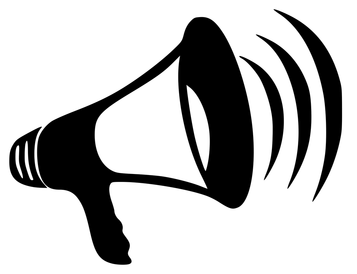
The horrific murders of French journalists have prompted widespread condemnations by religious leaders. Religion is in the vortex. “Charlie Hebdo,” the magazine where terrorist violence erupted, has tweaked religious sensibilities repeatedly. Islam has been featured but not singled out. The murders apparently reflect offense given to militants.
French Muslim leaders, and Muslims generally, immediately condemned the murders. But on CNN, Fareed Zakaria speculated this was a tepid response. He suggested that mainstream Muslims may diminish their condemnation because of the extent of “Charlie Hebdo’s” satire. The magazine has published cartoon likenesses of the Prophet Muhammad. Muslims shun visual depiction of the Prophet and iconography in general.
As a Christian, I mourn another extremist assault, this time on journalists. This is a complete misuse of religion, as well as an assault on free speech. At the same time, I am uncomfortable with mockery of any religion. The lives of believers, in their most profound aspects, are shaped by their faith. Mockery of one’s faith readily provokes indignation. It is an attack on one’s identity, one’s values and worth. No one sits comfortably with being insulted.
But freedom of speech benefits, rather than hinders, religion. It includes my freedom to worship and to announce my convictions publicly. Sensitivities collide because we live in an age of dramatically differing ideals and faiths. One person’s ideal is another’s threat.
The exchange of ideas, including critical challenge, is vital. Religious life cannot be immune; it must be honed in public. If my faith contains truth, it will be enhanced, not tarnished, by debate and even mockery. Religion requires the light of truth.
Religious people must grieve the violent deaths in Paris. We must oppose any attempt to silence. We welcome public debate. We need “Charlie Hebdo.”
William L. Sachs
French Muslim leaders, and Muslims generally, immediately condemned the murders. But on CNN, Fareed Zakaria speculated this was a tepid response. He suggested that mainstream Muslims may diminish their condemnation because of the extent of “Charlie Hebdo’s” satire. The magazine has published cartoon likenesses of the Prophet Muhammad. Muslims shun visual depiction of the Prophet and iconography in general.
As a Christian, I mourn another extremist assault, this time on journalists. This is a complete misuse of religion, as well as an assault on free speech. At the same time, I am uncomfortable with mockery of any religion. The lives of believers, in their most profound aspects, are shaped by their faith. Mockery of one’s faith readily provokes indignation. It is an attack on one’s identity, one’s values and worth. No one sits comfortably with being insulted.
But freedom of speech benefits, rather than hinders, religion. It includes my freedom to worship and to announce my convictions publicly. Sensitivities collide because we live in an age of dramatically differing ideals and faiths. One person’s ideal is another’s threat.
The exchange of ideas, including critical challenge, is vital. Religious life cannot be immune; it must be honed in public. If my faith contains truth, it will be enhanced, not tarnished, by debate and even mockery. Religion requires the light of truth.
Religious people must grieve the violent deaths in Paris. We must oppose any attempt to silence. We welcome public debate. We need “Charlie Hebdo.”
William L. Sachs
 RSS Feed
RSS Feed
